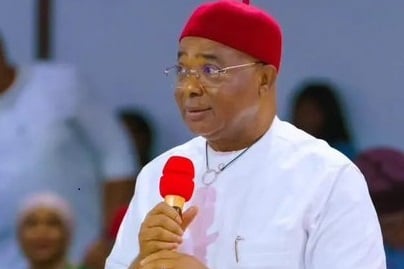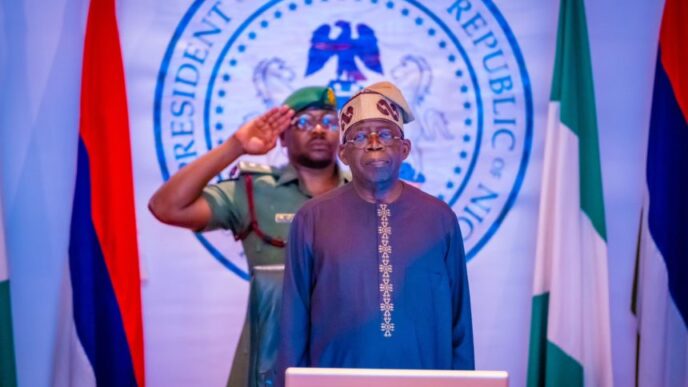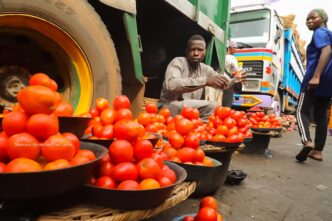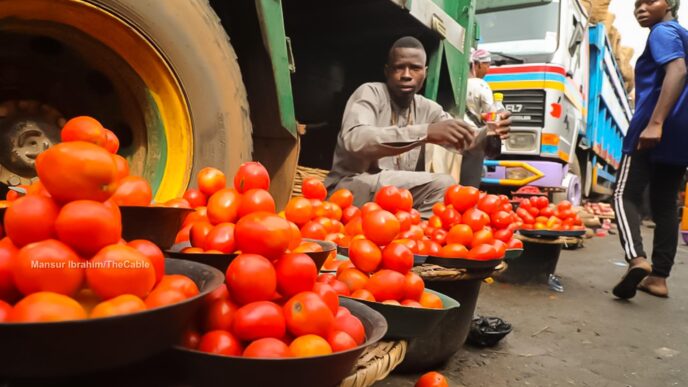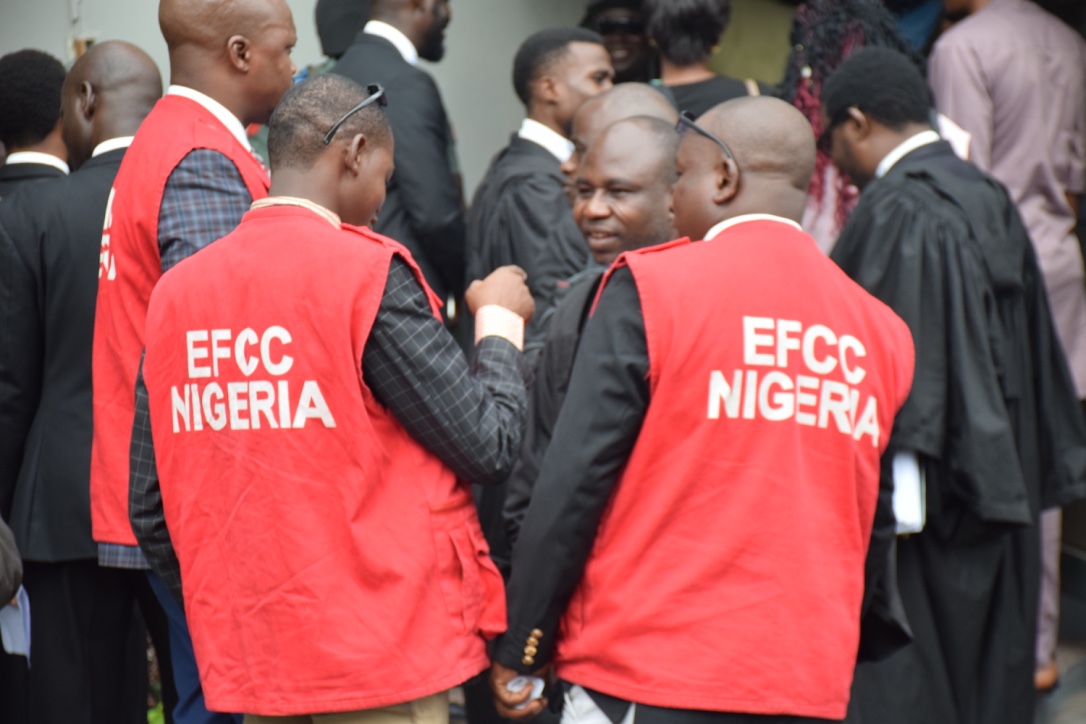Uzodinma
The joy in his voice was palpable. “Don’t worry”, he said, “we can easily make a profit of N400,000 a month, and out of that, we can pay ourselves between N25,000 and N30,000 a month for a start”. They are ten in number. His confidence was infectious. I was thrilled and inspired by their story. But how did it all begin?
Cajetan was my primary schoolmate. We called him Caje. Immediately after primary school, he went into apprenticeship to learn how to sell confectionaries and beverages. This sort of apprenticeship, customary in many parts of Igboland of Nigeria, is popularly known as Igba-boi or the Igbo apprenticeship system and has been recognised as one of the most significant communal venture capital globally.
Shortly after our primary school education, I left the village, but Caje and I kept in touch. He did well with his apprenticeship and later set up his own business. That was the much I knew of him then.
Life happened, and we were catapulted to different parts of the world. For many years, we lost contact until this August when we accidentally ran into each other again. It was indeed a happy moment. We exchanged contact details and agreed to meet to relive the past and share experiences. And this did happen!
Advertisement
From what I later learnt, Caje sojourned in Northern Nigeria for a long time. But recently, due to the rise of insecurity there, he was “forced” to return home to the Southeast of Nigeria – a much more familiar terrain – by circumstances beyond his control. Having returned seemingly unprepared, he seemed a bit stranded by that decision. However, his entrepreneurial instincts were still sharp and alert. He was keen to explore new opportunities.
“In addition to running a small business, I can now drive”, he quipped. “If that is an option, I don’t mind. I need to feed my family”, he continued. All I could see was a very determined soul. I recalled our childhood days. Caje was strong and kind.
Whilst in the village, he had also forayed into local politics. According to him, he galvanised his people to follow a particular line of political action in the last elections. I saw a leader in him and immediately spotted he could use his leadership capability and entrepreneurial prowess in a different way for group-based or collective entrepreneurship, which fits very well with the One Kindred One Business Initiative (OKOBI) currently championed by the Imo State Government under the leadership of Senator Hope Uzodimma as a means of economically empowering people, creating jobs, and lifting people out of poverty.
Advertisement
With this in mind, I asked him how much a driver is paid today and why he wanted to drive someone when he could build his own business with others. In our estimation, a driver’s salary could be between N30,000 and N40,000 a month. Moreover, it is a 24/7 job that is likely to take him away from his family (he appeared family-oriented) and other possible sources of income. I encouraged him to consider other options, including collaborating to set up a venture. Unemployment is high in our village. He thought collaborating with others would be almost impossible because of low trust and incompatible skills and interests. Moreover, the finances needed to start a new business would be challenging. Despite the apparent odds, I still nudged him to try and revert.
A few days later, he called and visited with nine others. I asked him how he convinced them to accompany him on the journey. Typical of him, he smiled, and I got the message. Caje is a man of few words. He believes in results, and his ability to galvanise interest further demonstrated his innate leadership capabilities. I asked them if they had identified a business idea they could all collaborate on. They answered in the affirmative. So, what’s the business idea?
Coincidentally, two of them had lived in Northern Nigeria. While there, they spotted that that part of Nigeria is rich in agricultural produce – mainly onions, groundnuts, carrots, tomatoes, et cetera. So, they agreed to go into the groundnut business. They would buy from the North and sell in the Southeast. They already know the terrain and people who can help them buy from the hinterlands cheaply for a good margin in the Southeast.
I asked them how much they would each like to earn a month from the business. They said about N25,000 to N30,000 each per month.
Advertisement
It is instructive to note that N30,000 was the official minimum wage in Nigeria before its recent revision. Nonetheless, someone who earns that amount of money in a rural setting is better off than someone who earns N70,000 in the city. So, the groundnut business came across as a good option for them.
I further asked them how much capital they would need to start the business and make at least a profit of N330,000 a month to pay themselves N30,000 each and have some extra for savings or reinvestment. They said an initial investment of N8m would do that. “Hmmm, would that be a good use of N8m?” I thought.
I asked them how efficient that was and if they could do other businesses that are less risky (at least travelling by road between Northern and Southeast of Nigeria carries with it some significant risks), more local, and cheaper to finance.
After a few minutes of brainstorming, one suggested they could start a palm oil business. Boom! That was the lightbulb moment that gained a swift consensus. I tasked them to flesh out the idea and promised to help them source start-up capital.
Advertisement
However, I didn’t leave them to it because I suspected they might not have the competence and capacity to develop a sound business proposal and plan I could help them operationalise. I recommended a business support consultant to them. They accepted the recommendation, engaged the consultant, and tasked themselves to pay for his services.
That was three months ago! Today, they have a registered partnership business (Duruewuru Business Venture) at the Corporate Affairs Commission of Nigeria. They have a sound business idea and have done their market research. That, for me, was the first test of their commitment, and they scaled it.
Advertisement
From my last discussion, they can buy a 25-litre palm oil in the village for N38,000 and sell it in the city for N41,000. That’s a profit of N3,000 or almost 8% gross profit per sale. That means for every twenty they sell, they make N60,000, which can pay two people monthly, costing them about N800,000. By their estimation, they can easily repeat this (i.e., recycle the capital) at least five times a month to pay everyone their target salaries. So, instead of starting with a capital of N8m, they can begin with N1m. Unbelievable!
That’s Caje’s story and a clear demonstration of how the OKOBI programme of the Imo State Government is impacting lives and igniting new hopes. Their business is now set to open a bank account. I am chuffed! I will help them source the start-up capital, as I promised them, because they have shown the commitment and tenacity necessary to plunge into the unknown world of entrepreneurial ventures.
Advertisement
Caje’s true story has shown me how a slight shift in one’s imagination can be liberating. It has further convinced me that group-based entrepreneurship is the way to go for grassroots economic empowerment in contexts of high unemployment. Caje and his crew will always have my best wishes as they sail into economic empowerment and financial freedom!
Imagine how transformational it would be to add a simple digital platform to link these rural businesses to global markets and investors. That’s a burning idea I am keen to pursue. Do you mind contributing to it?
Advertisement
So, help someone create a positive story today. Join the OKOBI movement, and let’s impact lives together – one at a time! It’s real, feasible, and practical. Ask Caje!
Amaeshi is from Amaimo Ikeduru, Imo State, Nigeria. He is a professor of sustainable business at the University of Edinburgh, United Kingdom, and holds the chair of sustainable finance at the European University Institute, Italy. He is also the Chief Economic Adviser to the Imo State Government. He can be reached via email at [email protected]
Views expressed by contributors are strictly personal and not of TheCable.

